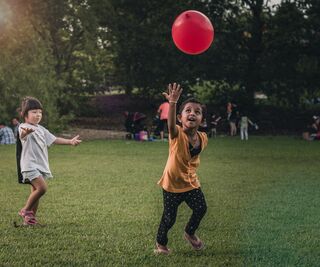Education
Distance Learning: Friend or Foe?
Three things we can do to help our children in distance learning.
Posted April 30, 2021 Reviewed by Pam Dailey
Key points
- Distance learning has not been as successful for kids as working from home has for parents.
- More important than the academic losses may be the effects on children’s mental health.
- When schools open, parents and teachers should watch for signs of post-traumatic stress.

Jason Mendoza was worried about his son. At 11 years old, Riley had grown up using the internet. He should have taken naturally to distance learning, but that didn’t seem to be the case.
One day in February, Jason asked Riley how school was going. “It’s stupid,” Riley said. “I’m not learning anything.”
It’s an all-too-common sentiment among parents, teachers, and yes, even children. Although telecommuting has largely worked for adult office workers, the results with school-age children have mostly been disappointing. Some kids have not even been logging into their classes.
Many of the same children who don’t bother attending their classes express similar sentiments to Riley—they feel cheated by the distance-learning experience, and they don’t make an effort because it feels pointless to try.
In addition to the lack of learning, parents and children frequently report that distance learning is creating more stress—for parents because they have to put more effort into monitoring their children and for children because of the lack of social contact. Furthermore, both parents and children worry about their falling behind once school goes back to “normal” in the fall—which now seems to be the likely timeline for many school districts.
In fact, most teachers now say they expect to spend most of next year catching up on the things students struggled to learn this year.
That said, a sizable minority of children are doing better under distance-learning conditions. Often these are highly introverted children, or even those with autistic spectrum disorder or social anxiety. For them, the solitude and quiet of learning from home can be a boon—albeit one that doesn’t encourage social-emotional learning.
Perhaps more important than the academic effects of distance learning, though, may be the effects it can have on children’s mental health: the sense of disconnection, the stress, the lost opportunities for social development.
In fact, the effects of pandemic stress may not be fully apparent until children go back to school. According to child psychologist Tom Pedigo, chief technical officer of Esteem Therapeutics, the harmful effects of stress on mental health are often fully apparent only after the source of stress is removed.
“It’s like how soldiers only show signs of PTSD after they get home from a war. It’s like this pressure builds up, and you see the effects only after the pressure is released.”
In fact, research shows that early life stress impairs the development of a variety of emotional and intellectual capabilities, including attention, executive function, reward processing, and emotional regulation.

Here are three things we can do to help our children.
- Do everything we can to reduce the stress they experience. That means letting them go outside and play and also socialize with their peers to whatever extent possible and assuming they are comfortable with it. It also means doing what we can to so they don’t feel like they’re “at school” all the time.
- Help them deal with stress as it comes. That could mean teaching them to meditate, focusing on maintaining a healthy sleep schedule, or simply having supportive discussions about their feelings and difficulties.
- When school is back in session, parents and teachers will have to carefully watch children for signs of post-traumatic stress. These could include social withdrawal, difficulty paying attention, disruptiveness, chronic fatigue, or even depression.
References
Pechtel, P., & Pizzagalli, D. A. (2011). Effects of early life stress on cognitive and affective function: an integrated review of human literature. Psychopharmacology, 214(1), 55–70. https://doi.org/10.1007/s00213-010-2009-2


